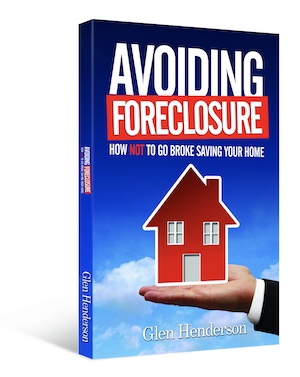Do I Need A Foreclosure Attorney?
Foreclosure is an intimidating process. It can be useful to have an attorney just to help you navigate the entire situation! But do you really need a foreclosure attorney, on top of all the other fees and financial hardships that foreclosure brings?
Judicial vs. Nonjudicial Foreclosure
In judicial foreclosure, the case for foreclosure will got through the court system and you have to respond in writing and file an answer with the court. You must make the argument that your lender cannot foreclose on your house. In situations where you are facing judicial foreclosure, an attorney is highly recommended. They can help present your case in the best light to increase the likelihood that you can buy time or even get the case thrown out entirely. It can be tough to navigate the legal system, especially poised against a lending company with professional lawyers who have done this many times before.
In nonjudicial foreclosure, you don’t have to go to court. There are still a number of legal issues that need to be navigated, but you’ll find yourself in a completely different situation. The process is slower, and a bit less complex. While a lawyer is still really helpful—and you can take legal action against your lender—you definitely don’t need one.
Bottom line: if you’re going through judicial foreclosure, you should definitely get an attorney. If you’re going through nonjudicial foreclosure, you should at least consider it.
HUD Counselors
Your best weapon in the fight against foreclosure are housing counselors who are provided free of charge through the U.S. Government’s housing and urban development branch. The housing counselor program allows people to get counseling on housing, mortgages, and foreclosures without paying a fee. There are additional services that are available to people who cannot afford to pay for counseling.
HUD counselors can walk you through the foreclosure process so that you may not need an attorney. But they can also refer attorneys and advise you on whether or not you need an attorney. If you are dealing with an especially aggressive lender, or a lender who decides to break the law, it might be really important to lawyer up to protect yourself.
Fighting For Your Home
The Loan Servicer is in Error
You should always hire a lawyer if the loan servicer didn’t follow foreclosure procedures, can’t prove that it owns your loan, or made an error with your account. Errors by lenders are somewhat rare, but they certainly happen every single year. If your lender is in error you may have a great case that can get your foreclosure completely thrown out. Lawyers can help you make arguments, file paperwork, and defend your case. It’s really unlikely that you’ll have the experience and time to fight the case yourself.
Military Assistance
Military people have additional foreclosure protections under the Servicemembers Civil Relief Act, which can help prevent you from experiencing foreclosure. If you’re military, an attorney can help you take advantage of the SCRA. It might not completely prevent foreclosure, but it can certainly help. At the least, the SCRA can help delay the process so that you can make good on your payments.
Fighting Dual Tracking
If your lender is dual tracking, you’ll need a lawyer. Dual tracking is a practice where your servicer is foreclosing while your foreclosure alternative application is still pending. It’s illegal, but it happens at times when lenders want to move the process through quickly. They have to pause the foreclosure process while you apply for alternatives to foreclosure. It’s tough to know when this is really happening, but pay close attention to the timeline. If you suspect dual tracking, you should get an attorney involved.
When You Should Not Hire an Attorney
There is no reason to eat additional fees on an attorney if you know that you’re going to lose the appeals process, if your lender isn’t doing anything wrong, and if you really don’t have a case at all. If you know that you’re going to lose, save the money. It’s just not worth it. That’s why getting help from a HUD-approved housing counselor can be really helpful. They can usually give you an honest assessment of your situation so that you know whether or not attorney’s fees could actually make a material difference in your case.
Additionally, your plan might just be to buy as much time as possible to live in the home for free while you put your finances in order and figure out the next move. If that’s the case, you probably don’t need an attorney either. Only hire an attorney if you have a clear conception of the goal you think that they can help you accomplish.




